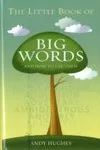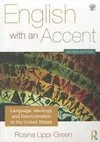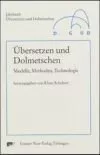
-
 Anglický jazyk
Anglický jazyk
Development of Lear´s Character in Shakespeare´s Tragedy 'King Lear'
Autor: Alina Müller
Seminar paper from the year 2011 in the subject English - Literature, Works, grade: 1,3, Johannes Gutenberg University Mainz, language: English, abstract: The tragedy of King Lear, written by William Shakespeare in the seventeenth century, comprises a lot... Viac o knihe
Na objednávku
15.75 €
bežná cena: 17.50 €
O knihe
Seminar paper from the year 2011 in the subject English - Literature, Works, grade: 1,3, Johannes Gutenberg University Mainz, language: English, abstract: The tragedy of King Lear, written by William Shakespeare in the seventeenth century, comprises a lot of informative topics that are still relevant today. For example, Foakes is fascinated by the diversity of the play's themes saying, "[i]t is unsparing in its depiction of human cruelty and misery, but also rich in its portrayals of goodness, devotion, loyalty and self-sacrifice" (1). He adds that "...its language and its imagery, have encountered many to see the play in terms of universal values, as a kind of objective correlative for the spiritual journey through [the] life of [the] suffering Man" (Foakes 1997, 1). Foakes is insisting that the main plot and the sub-plot of the tragic heroes, known as Lear and Gloucester, are worth considering because both comprise many tragic events. First of all, the main plot for the character, Lear, should be regarded because it seems to be more tragic and complex. Reading the tragedy, it becomes obvious that Lear, throughout the play, undergoes a gradual development of his identity. The way he experiences this change is important to follow, because it gives the readers a better insight into his changing personality.
First, Lear¿s true identity will be represented in this paper through the abdication scene and banishment of Cordelia: "[t]he proud and egotistical king of the first scene, who cannot tell the difference between love and flattery..." (Green 1992, 171) unfairly divides his kingdom between his three daughters. Secondly, Lear¿s wandering in search of self will be shown after being dishonoured by his ungrateful daughters in the storm scene. After losing his power, his daughters, and his house, Lear begins to lose his mind, and in trying to find the reason of his suffering becomes mad. Finally, Lear¿s ripeness will be introduced after his meeting with Gloucester and reconciliation with Cordelia. Now Lear gets a new insight into himself, finds an answer to his madness, repents, and reveals himself to his banished daughter. So, this paper will show that insensible Lear, who values his authority above all, learns to understand the true feelings and to be human only after going through the grievous journey from the loss of his status as king, through his sufferings, to self-knowledge and self-revelation. A more precise understanding of these subjects will be introduced in the next pages.
- Vydavateľstvo: GRIN Verlag
- Rok vydania: 2011
- Formát: Paperback
- Rozmer: 210 x 148 mm
- Jazyk: Anglický jazyk
- ISBN: 9783656065562



 Ruský jazyk
Ruský jazyk 






 Nemecký jazyk
Nemecký jazyk 